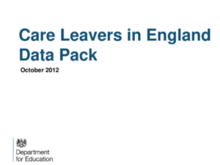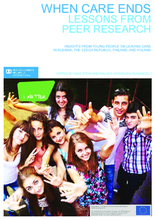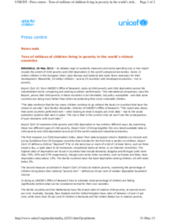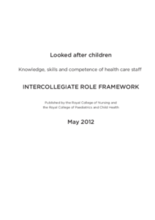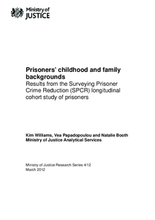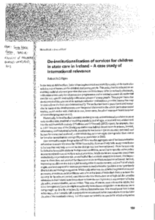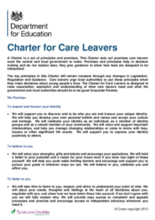

Displaying 1541 - 1550 of 1653
This data pack, produced by the Department for Education, aims to summarize national data about children who leave care aged 16 and over and outcomes of care leavers at age 19. The pack was also developed to help local authorities to compare their performance with others and to investigate issues such as age of leaving care and placement stability on the outcomes of care leavers.
This report presents the findings from a two-year peer research project which includes the testimony of more than 300 young people with care experience in Albania, the Czech Republic, Finland, and Poland. More than 40 care leavers from the four countries were selected and trained to play an active role in the all aspects of the projects. The interviews revealed widespread inadequacies regarding the process of leaving care, promoting the research team to draw up recommendations to address them.
The chapters in this book discuss the complexity immediately encountered when approaching the task of improving the lives of Looked After Children (LAC).
This article describes the results of a meta-analytic review aimed at providing an estimate of the prevalence of physical and emotional neglect by integrating prevalence figures from the body of research reporting on neglect. It discusses and makes recommendations on the dearth of studies investigating the prevalence of child neglect, despite evidence of its severe consequences on millions of children, and a global prevalence estimated to be above 15%.
As debates rage on austerity measures and social spending cuts, a new report reveals the extent of child poverty and child deprivation in the world’s advanced economies. Some 13 million children in the European Union (plus Norway and Iceland) lack basic items necessary for their development. Meanwhile, 30 million children – across 35 countries with developed economies – live in poverty.
This paper presents findings from the first-ever study of kinship care in the UK using census micro data.
This document provides an outline for the competencies, training and skills needed by healthcare staff to work with looked after children at different professional levels in the UK. It recognizes that all health staff should have access to appropriate training, learning opportunities, and support to fulfill their roles and responsibilities, particularly when it comes services provided to looked after children.
This report presents findings of a study on the childhood and family backgrounds of 1,435 participants who were newly incarcerated in 2005 and 2006 in the United Kingdom. The report has a special focus on the experiences of abuse and care placement in childhood.
This paper describes Ireland’s successful implementation of a policy of de-institutionalization of out-of-home care for children.
This Charter lists the promises that care leavers want the central and local governments to make. The Charter for Care Leavers is designed to raise expectations, aspirations and understanding of what care leavers need and what the government and local authorities should do to be good “Corporate Parents.”

